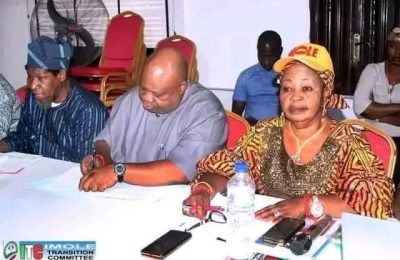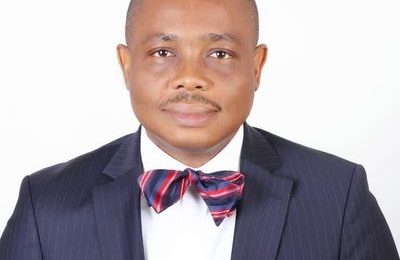

The Senior Special Adviser to the President on Health, Dr. Salma Anas-Ibrahim has disclosed that the renewed hope health agenda of President Bola Tinubu is committed to covering over 50 million Nigerians and the most vulnerable, including the elderly people within the next four years.
Anas-Ibrahim while disclosing this in her keynote address on Monday at the National Healthy Ageing Summit in Abuja, therefore, expressed optimism that it is doable, as younger generations can tap the potentials and harness the contributions of all to achieve national development and socio-economic growth of their country.

She said: “The renewed hope health agenda of President Bola Ahmed Tinubu is committed to cover over 50 million Nigerians and most of them vulnerable, including the elderly people within the next four years by the grace of God.”
“As I’m speaking to you today as a special adviser to the president, the president of the Federal Republic of Nigeria, President Bola Ahmed Tinubu, I want to reiterate to you that this is a critical stage in our lifetime in Nigeria, as we are transitioning to a new government of renewed hope and a renewed hope for health.:
“So I would like to say that the President is committed to ensuring that we meet and realize our universal health care coverage, which also involves the health of the elderly people. No one will be left behind. Not an elderly person or any other person will be left behind,” She said.
She further disclosed that the agenda will recognise a critical component of the vulnerable group and will access quality healthcare services that cover all vulnerable groups including women and children, and also disabled people.
“The elderly need both social and psychological needs in addition to medical needs, as we also need to protect them from long-term care, provide support and protection from abuse and discrimination.”
“These are things that are happening silently in our communities, but you know, as I said, elderly people, their voices continue to get low so they don’t complain.”
She noted that Nigerians have an extended family system and strongly feel that most of the elderly are well protected by that system.
“But within that system, there are abuses. Just a few weeks ago, I had a lot of interaction with Nigerians in the diaspora, and one of the keys they brought out was abuses of the elderly.”
Also speaking, the World Health Organization (WHO) Representative in Nigeria, Dr Walter Mulombo said Globally, there were 703 million persons aged 65 or over in 2019 adding that over the next three decades, the number of older persons worldwide is projected to more than double, reaching more than 1.5 billion persons in 2050.
He said, apart from Northern Africa and Asia, the second fastest increase is projected for sub-Saharan Africa, where the population aged 65 or over could grow from 32 million in 2019 to 101 million in 2050.
He noted that despite spare data on older persons, Nigeria is not spared from these alarming figures with about 14.8 million aged 60 years and above.
He, therefore, called upon the Government of Nigeria to continue to exercise leadership and increased investment in human capital development to further strengthen the partnership and prioritise the Decade of Healthy Ageing by focusing on improved engagement with older people;
“Better understanding of older people’s needs; developing and strengthening health and long-term care, specifically in communities and improved multisectoral action in aligning with the PHC system approach as we take the opportunity of the recent PHC summit and its recommendations.”
“Advocate for continued capacity-building; evidence-based guidance; support to connect, convene and exchange knowledge with relevant stakeholders; and data and innovation at all levels to inform decision making and better coordination and serve as a tool to provide feedback to health service delivery managers and communities resulting in improvements in service provision for the older persons in integrated approach”. He added.
READ ALSO FROM NIGERIAN TRIBUNE








